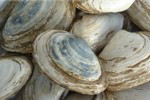 WIKIMEDIA, NISHIMASU ET AL.The Scientist this week sorted through the complicated CRISPR intellectual property (IP) landscape. While MIT’s Feng Zhang was granted the first CRISPR-related IP from the US Patent and Trademark Office, it may be challenged by an application filed previously by Jennifer Doudna of the University of California, Berkeley, and Emmanuelle Charpentier at Germany’s Helmholtz Center for Infection Research.
WIKIMEDIA, NISHIMASU ET AL.The Scientist this week sorted through the complicated CRISPR intellectual property (IP) landscape. While MIT’s Feng Zhang was granted the first CRISPR-related IP from the US Patent and Trademark Office, it may be challenged by an application filed previously by Jennifer Doudna of the University of California, Berkeley, and Emmanuelle Charpentier at Germany’s Helmholtz Center for Infection Research.
Meanwhile, several biotech companies are using CRISPR technologies to make products for both research and clinical use. Jacob Sherkow of the New York Law School told The Scientist it might be three to five years before the CRISPR IP is settled. “The technology seems so powerful, the technology seems so profitable, and the intellectual property issues seem so irreconcilable that it’s a big mystery as to what’s going to happen,” he said.
 MICHAEL J. METZGERResearchers at Columbia University in New York and their colleagues have homed in on a potential cause of a contagious leukemia that’s killing soft-shell clams along the Atlantic coast. They’ve uncovered evidence to suggest that the cancer is spread by contagious cancer cell line. The team’s results appeared in Cell this week (April 9).
MICHAEL J. METZGERResearchers at Columbia University in New York and their colleagues have homed in on a potential cause of a contagious leukemia that’s killing soft-shell clams along the Atlantic coast. They’ve uncovered evidence to suggest that the cancer is spread by contagious cancer cell line. The team’s results appeared in Cell this week (April 9).
“We were surprised to have learned that there is even such an example [of contagious cancer] in the marine environment,” said Columbia’s Stephen Goff, who led the work. ...





















